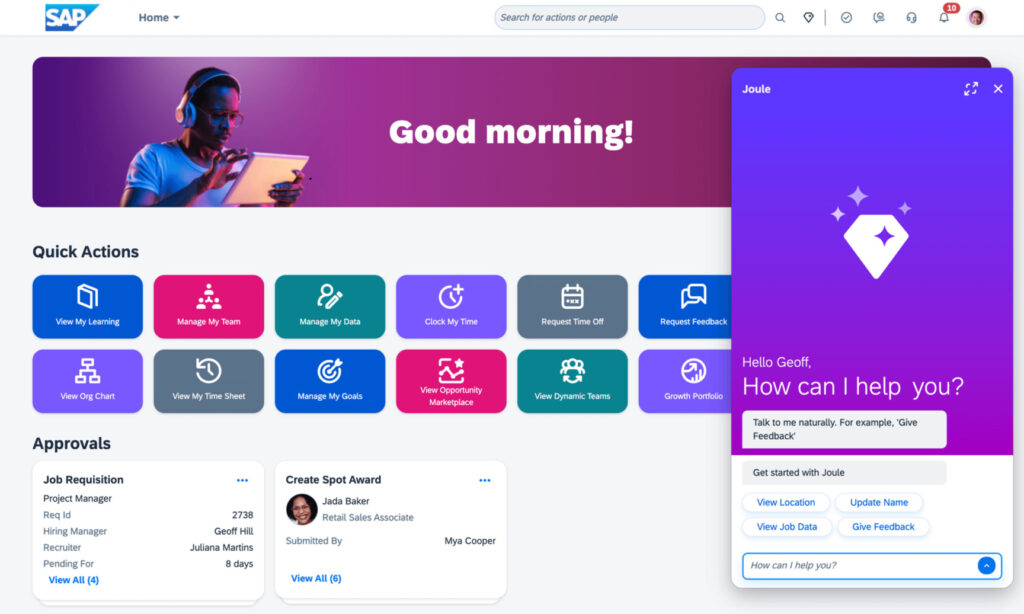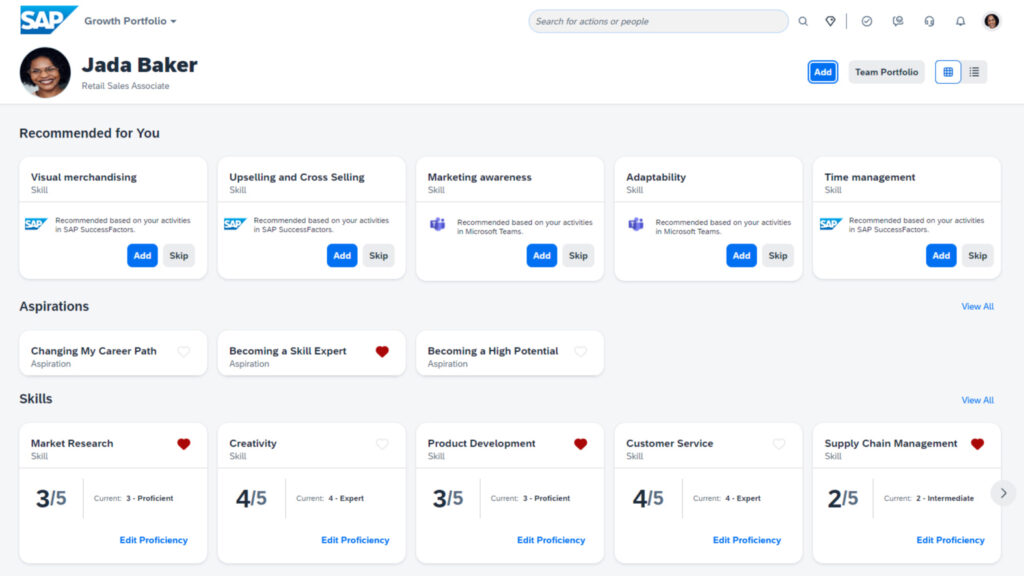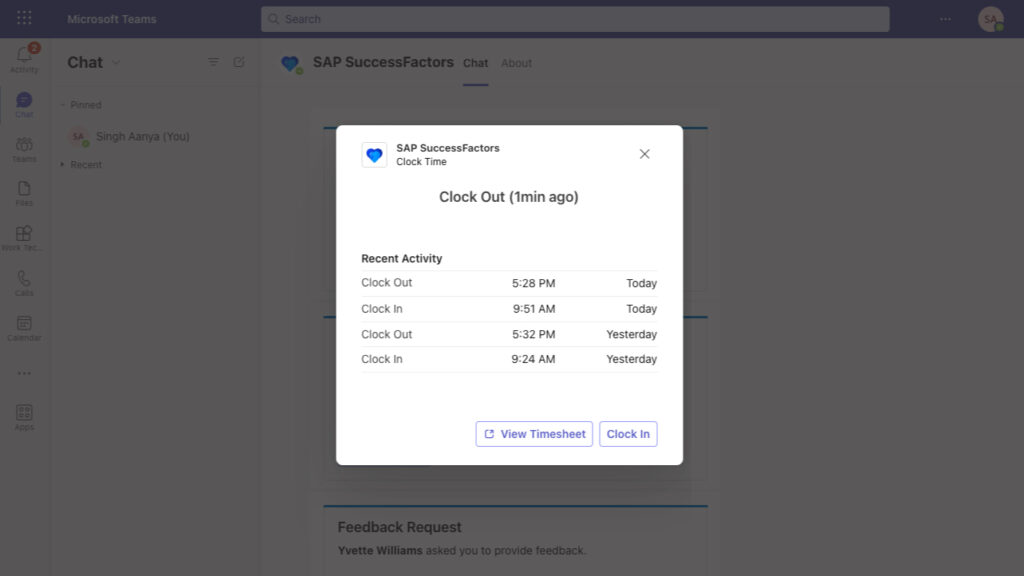Over the past few years, HR has steadily evolved into one of the most critical functions for any organization. HR not only has a seat at the table, but the ability to become a driving force behind organizational change and growth. Most customers I speak with recognize this opportunity, but many have the same question: how can HR make the most impact?
Each year, the SAP SuccessFactors Growth & Insights team conducts in-depth research on the latest trends and predictions impacting the HR function. Our PhD-level organizational psychologists and market intelligence experts aggregate and analyze a mountain of HR trends and predictions data to deliver a list of actionable “meta-trends.” For 2024, a list of 611 individual trends were broken down into nine key themes.
Above all, there is no question that 2024 is the year of artificial intelligence (AI). No longer just hype or speculation, AI is officially here. Exciting possibilities have become realities and organizations must embrace AI or risk being left behind. And while our number one HR trend is AI, you can also see its effects across every trend.
Below is a snapshot of the top three 2024 HR meta-trends, with examples of how SAP SuccessFactors solutions can help organizations stay ahead of the curve.

1. AI Upends the World of Work as We Know It
I don’t go a day – or maybe 10 minutes – without a customer asking for all the latest and greatest on AI innovation. That makes sense, as AI has dominated the 2024 trends discourse and it’s increasingly become seen as a way to augment human work.
Trends indicate that using all forms of AI to improve day-to-day productivity will be top of mind for organizations in 2024. In particular, self-serve AI tools like copilots are poised to increase employee productivity on various day-to-day tasks. As employee sentiment about using AI tools at work has improved, so has the ability of these tools to make employees more efficient and effective.
HR use cases abound, particularly within talent acquisition, but concerns continue about data privacy, ethics, and regulatory compliance. There’s a lot of noise and movement in the space, and regulators and enforcement agencies are acting quickly to keep up.
With the tech landscape and market realities in mind, the HR leaders who head AI implementation programs, maintain a strong policy posture, and avoid overhyped or underbaked propositions to take advantage of the most valuable capabilities will steer their organizations down the right AI path.
Embedding an AI copilot in HR solutions, like Joule in SAP SuccessFactors solutions, can help employees and managers work faster and smarter by making it easier to find information and complete common HR tasks, such as updating personal data, giving feedback, and initiating a promotion.

2. Skills Become the Center of HR Practices
As AI needs rise within organizations, many organizations will need to immediately respond to determine what AI skills are needed, who possesses those skills, and how to fill skill gaps – whether build, borrow, buy, or bot. On the other hand, AI capabilities will also drive the ability for organizations to more effectively engage in strategic workforce planning.
Furthermore, in today’s increasingly complex business environment, traditional top-down human resources approaches fail to address employees’ increasing expectations for flexible and personalized career development. In 2024, HR will need to meet employees’ growing expectations for bespoke career paths while also solving the broader organization’s growing skills gaps and talent shortages, which present a major concern for leaders.
Looking forward, it will be interesting to see whether the average organization fully engages in long-term, strategic, skills-based workforce planning, which has long been a strategic objective for many but often remains out of reach as they react to immediate priorities. AI skills could work as a forcing function here – and contribute to other trend areas like learning and employee potential.
SAP SuccessFactors solutions for talent management can drive better employee experiences and business outcomes by using a common skills framework across recruiting, learning, performance management, internal mobility, and development.

3. Hybrid Work Returns to the Office
Looking back at our yearly analyses of HR meta-trends, we saw the hybrid work topic shift from a focus on remote work as a reactive tactic to protect employees’ health and safety in 2020, to a focus on flexibility in 2021, to maintaining productivity and collaboration while working flexibly in 2022, and finally to an emphasis on underlying flexibility and the need for and benefit of malleable guidelines and principles in 2023. With the recent increase in partial and full return-to-office (RTO) policies, 2024 trends data suggests that the pendulum has swung back to hybrid, referring specifically to work location versus a broader perspective centered on flexibility.
Companies in 2024 will continue to experiment with motivating employees to return to the office in ways that promote productivity, collaboration, and cost savings but don’t alienate their top talent. But some organizations are focusing more on redesigning the nature of work rather than just mandating where or when work gets done.
SAP SuccessFactors solutions for core HR, time, and payroll help employees adopt a hybrid working model by providing options for common HR tasks regardless of when and where they are working, such as clocking in and out via desktop, mobile, or Microsoft Teams.

There are plenty more strategic takeaways in the full report – the entire paper is a must-read for HR leaders to learn more from our research team on the latest trends in:
- Diversity, equity, inclusion, and belonging (DEI&B)
- Employee mental health
- Leadership trust
- HR skills and agility
- Compensation
- Sustainability
For additional insights, read the full report.
Dan Beck is president and chief product officer for SAP SuccessFactors.



